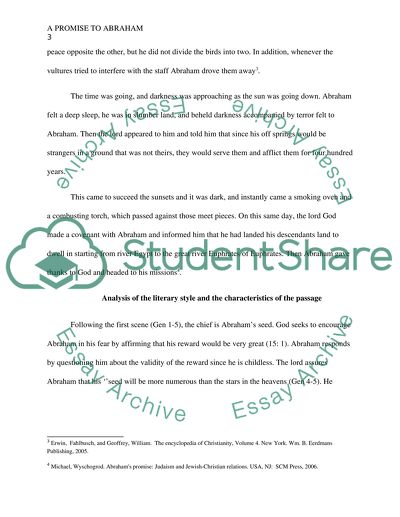Cite this document
(“A Promise to Abraham Essay Example | Topics and Well Written Essays - 2500 words”, n.d.)
Retrieved from https://studentshare.org/religion-and-theology/1393896-a-promise-to-abraham
Retrieved from https://studentshare.org/religion-and-theology/1393896-a-promise-to-abraham
(A Promise to Abraham Essay Example | Topics and Well Written Essays - 2500 Words)
https://studentshare.org/religion-and-theology/1393896-a-promise-to-abraham.
https://studentshare.org/religion-and-theology/1393896-a-promise-to-abraham.
“A Promise to Abraham Essay Example | Topics and Well Written Essays - 2500 Words”, n.d. https://studentshare.org/religion-and-theology/1393896-a-promise-to-abraham.


